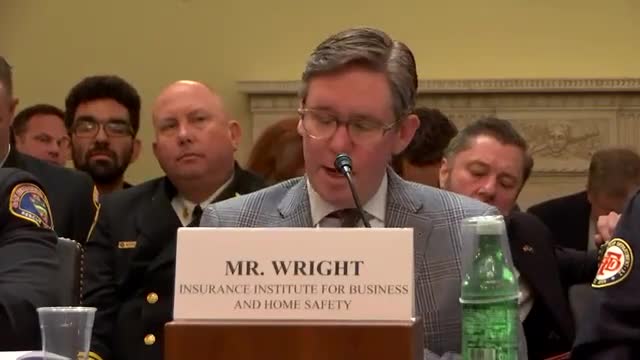Legislators Discuss Insurance, Forest Management Solutions for Disaster-Prone Areas
May 16, 2025 | Natural Resources: House Committee, Standing Committees - House & Senate, Congressional Hearings Compilation
This article was created by AI summarizing key points discussed. AI makes mistakes, so for full details and context, please refer to the video of the full meeting. Please report any errors so we can fix them. Report an error »

In a recent oversight hearing held by the U.S. House Committee on Natural Resources, critical discussions emerged regarding the intersection of insurance practices, disaster preparedness, and community resilience in the face of natural disasters. The hearing highlighted the urgent need for reform in insurance models and proactive measures to mitigate risks associated with climate-related events.
One of the primary concerns raised was the issue of underinsurance, particularly in areas prone to disasters such as hurricanes and wildfires. Witnesses pointed out that many homeowners are inadequately covered due to outdated insurance models that fail to account for rising property values and increased risks. For instance, in Puerto Rico, homeowners often lack sufficient flood insurance, while in California, flawed algorithms used by insurers have left wildfire survivors struggling to recover. The discussion emphasized the need for insurance companies to adapt their pricing and coverage to reflect current risks and property values, ensuring that homeowners are adequately protected.
The hearing also underscored the importance of long-term planning and investment in community resilience. Captain Chapman, a key witness, shared insights from the Forest Restoration Initiative, which has successfully leveraged significant investments to enhance forest management and reduce wildfire risks. This initiative serves as a model for how collaborative efforts can yield positive outcomes in disaster-prone areas. The panelists agreed that maintaining partnerships and investing in both natural and built environments are essential for effective disaster mitigation.
Furthermore, the conversation touched on legislative efforts, such as the Fix Our Forests Act, which aims to streamline funding processes for communities seeking to implement wildfire prevention measures. Witnesses noted that removing bureaucratic barriers could facilitate quicker access to necessary resources, enabling communities to better prepare for potential disasters.
As the hearing concluded, there was a clear consensus on the need for dedicated federal funding to support these initiatives. Without adequate resources, many proposed programs risk remaining theoretical rather than operational. The discussions highlighted a bipartisan commitment to addressing these challenges, with participants expressing a willingness to collaborate on solutions that enhance community resilience and improve insurance practices.
In summary, the oversight hearing brought to light significant issues surrounding insurance coverage, disaster preparedness, and the importance of long-term planning. As communities continue to face the realities of climate change, the need for effective policies and funding to support resilience efforts has never been more critical. The committee's next steps will likely involve further exploration of these issues and potential legislative actions to address the identified gaps.
One of the primary concerns raised was the issue of underinsurance, particularly in areas prone to disasters such as hurricanes and wildfires. Witnesses pointed out that many homeowners are inadequately covered due to outdated insurance models that fail to account for rising property values and increased risks. For instance, in Puerto Rico, homeowners often lack sufficient flood insurance, while in California, flawed algorithms used by insurers have left wildfire survivors struggling to recover. The discussion emphasized the need for insurance companies to adapt their pricing and coverage to reflect current risks and property values, ensuring that homeowners are adequately protected.
The hearing also underscored the importance of long-term planning and investment in community resilience. Captain Chapman, a key witness, shared insights from the Forest Restoration Initiative, which has successfully leveraged significant investments to enhance forest management and reduce wildfire risks. This initiative serves as a model for how collaborative efforts can yield positive outcomes in disaster-prone areas. The panelists agreed that maintaining partnerships and investing in both natural and built environments are essential for effective disaster mitigation.
Furthermore, the conversation touched on legislative efforts, such as the Fix Our Forests Act, which aims to streamline funding processes for communities seeking to implement wildfire prevention measures. Witnesses noted that removing bureaucratic barriers could facilitate quicker access to necessary resources, enabling communities to better prepare for potential disasters.
As the hearing concluded, there was a clear consensus on the need for dedicated federal funding to support these initiatives. Without adequate resources, many proposed programs risk remaining theoretical rather than operational. The discussions highlighted a bipartisan commitment to addressing these challenges, with participants expressing a willingness to collaborate on solutions that enhance community resilience and improve insurance practices.
In summary, the oversight hearing brought to light significant issues surrounding insurance coverage, disaster preparedness, and the importance of long-term planning. As communities continue to face the realities of climate change, the need for effective policies and funding to support resilience efforts has never been more critical. The committee's next steps will likely involve further exploration of these issues and potential legislative actions to address the identified gaps.
View full meeting
This article is based on a recent meeting—watch the full video and explore the complete transcript for deeper insights into the discussion.
View full meeting